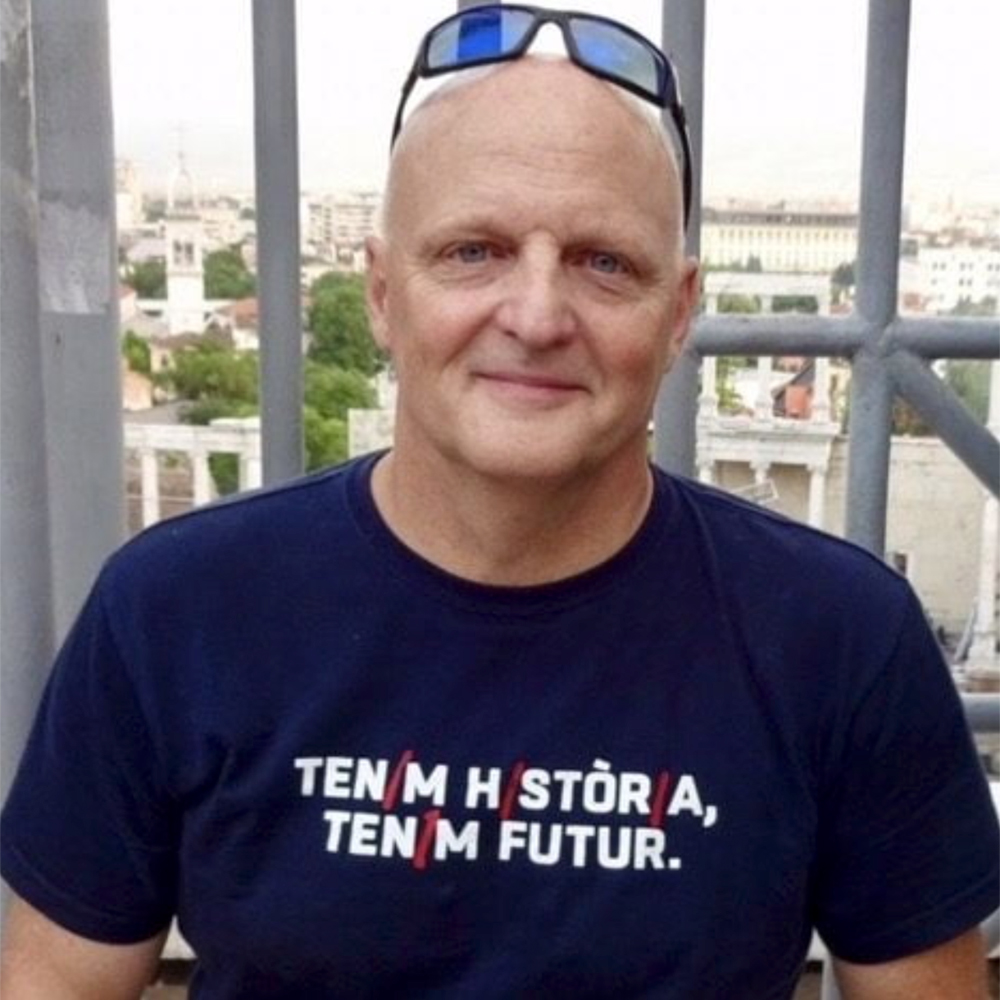The Insularity of the Academic Elite
There came a point in my doctoral studies when I could no longer pretend that I could survive and be halfway happy on the $675 a month stipend my well-endowed Ivy League university was paying me to teach the department’s introductory-level language courses.
The standing rationale for this system in the university and in the department was that they were offering us a valuable opportunity to gain pedagogical experience to show off when we entered the job market upon the completion of our degrees.
But I had already worked at a nice private secondary school where, unlike at the university, I had been granted full freedom to write my syllabi, and to decide on how I would convey the material to my students.
So, in defiance of my professors, who subtly warned that by going off the reservation I’d be imperiling my would-be glorious career, I decided there’d be no more peanuts-paid, prefab pedagogy for me. And I went out and found a job, first as an interpreter at an immigration agency, and subsequently as a full-time instructor with full control of my course content at a nearby college.
Though I was now teaching many more hours, the escape from academic serfdom invigorated me because, unlike most of my brilliant “mentors” at the university, my colleagues there treated me as a sentient being with ideas of my own.
And it was not long before one of them, who was also working on nationalism, invited me to participate in a seminar she was organizing with several well-known people in the field. I was thrilled. But I was also very nervous as I prepared for the event.
In the very early 1990s, the hand of Marxist theory still lay quite heavily upon the study of academic history. And nationalism was, accordingly, portrayed as an unfortunate and outmoded concept that would slowly but surely be extinguished as citizens came to understand its essentially false and extortionate nature. Implied in this line of thinking was the belief that most people were at their core purely rational actors whose penchant for religion was the result of having suffered for centuries under elite-imposed “religious” hocus pocus designed to blunt their critical capacities.
However, my studies to that point had led me to a very different take on the issue. I worked from the premise that while social elites may have taken advantage of organized religion to consolidate their control of the masses, this in no way meant that the desire for transcendence in those same masses throughout history was exogenous to them.
Rather, I believed that given all the mystery surrounding our respective appearances on this earth and the often-unexplainable ways in which they physically leave it, it was only natural that humans would gather together in religions (from the Latin verb religare meaning “to bind together”) in the hope of gaining both emotional succor and insight into their shared existential terror and doubt.
Furthermore, I was particularly struck by the simultaneous development in late 19th and early 20th century Europe of the rapid urbanization, mechanization, and secularization of daily life, on one hand, and the consolidation of the nation-state as its normative form of social organization on the other.
While those of a more materialist analytical outlook, rooted explicitly or implicitly in Hegelian and/or Marxist precepts of historical progress, tended to view this undeniable correlation as proof of the continent’s inexorable march toward new forms of secular liberation, I viewed it as a case of what psychologists sometimes call affective transference.
In the same way that many indigenous groups in 16th century Mesoamerica rapidly shifted their allegiance from native rituals of transcendence to those of the Spanish Catholic invaders of their lands, it seemed that many Europeans of late 19th and early 20th century Europe simply took the mental energy they once directed toward the church and deposited it into the outstretched arms of the nation-state and its attendant ideologies.
When it came time to give that first paper before a room of assembled experts on nationalism, I thus suggested that analyzing the creation, growth, and maintenance of national identity movements in light of the liturgical and organizational tendencies of established religions might bear very fruitful results.
I argued more specifically that the appearance of “nationalist catechisms” in all five of the major culture-nations of the Iberian Peninsula (Castile, Catalonia, Portugal, Galicia, and the Basque Country) within very few years of each other in the early 20th century was anything but coincidental, but rather a clear indication of how, as in the case of nascent religions, doctrinal conflicts always emerge in such movements, and are generally resolved by self-appointed “catechists” or canon-makers who pare the discourse down to what they consider to be its most readily digestible essence.
To say that my exposition did not go over well is an understatement. I was attacked especially hard by a scion of a well-known Catalan republican family who openly mocked the idea that the development of nationalism, especially Catalan nationalism, could in any way be related to religious impulses. This, despite the fact that one of the region’s earliest ideologues of its collective identity was a Catholic priest named Josep Torres i Bages, who was roundly famous for the following dictum: “Catalonia will be Christian, or it will not be at all.”
What was interesting is that his colleague was not the least bit interested in engaging with me or providing arguments for his position. Rather, he just wanted to jeer and mock the well-considered opinion of a much younger and—this is key—a much less institutionally empowered person.
It was only later that I realized that I had been given an early dose of the very mentality that is propelling today’s academy into its ever-increasing state of social irrelevance.
Though we seldom talk about it, each of us carries out our daily activities in what Pierre Bourdieu called a habitus; which is to say, a social space defined and bounded by a set of implied conclusions about the allegedly essential nature of the reality in which we toil. In the case of the overwhelming majority of those currently working in academia in the US and Europe, these unstated presumptions include the following:
- Humans are largely cerebral creatures whose corporal or spiritual needs and desires are, and should be, completely subordinate and inferior to their ideational processes.
- That human progress rooted in so-called rational analysis is inexorable and linear in nature.
- That to talk of spirituality or intuition as key driving factors in human affairs is to regress to the thankfully vanquished superstitions of a dark past that have now been eliminated by the application of reason to them by people like us.
- That no intellectually serious person should waste his precious time with people who bring this outmoded cognitive pollution into serious discussions.
- And that if, by chance, someone in the habitus continues to insist on bringing “externalities” such as these into conversations and debates on the human condition we, as responsible people who know better, have every right to use the power invested in them by their institutions to ban them and their ideas from their presence.
An integral element of the this allegedly rational, modern approach to generating understanding is the idea that we can almost always learn more thorough analysis, which is to say the examination of a phenomenon’s constituent parts in isolation, than we ever can from synthesis, or the careful examination of the behavior of the thing or phenomenon as an integrated and dynamic whole.
But while the first approach can provide some startling new insight at the outset of an investigational journey, especially in the sciences, it badly founders—as many are coming to understand—when it comes time to advance understanding of complex multifactorial problems within the human body, or as we saw during the so-called pandemic, in the realm of public health.
And when it comes to the humanities, which is to say, the study of the vast and ever-changing imprint of human creativity on the world, this fragment-reality-so-I-can-more-easily-come-up-with-publishable-content approach is an absolute disaster.
Human beings live, breathe, and create not as containers of static and isolatable phenomena but as functionally dynamic wholes subject to an incredible diversity of thoughts and social influences in the course of their daily lives.
The humanist’s fundamental job is, or at least should be, one of synthesis, of taking a wide-angle approach to the many things he observes in culture and seeking to explain how its many moving parts work in relationship to each other to create something that most people generally recognize as having meaning.
When viewed in this light, we can see the inherent absurdity of the approach taken by that long-ago senior colleague who wanted—for reasons that I suspect were mostly about wanting to reaffirm his own militantly secular view of reality and/or his membership in a social class supposedly untainted by irrationality—to effectively bar any consideration of the possible role of religiosity from discussions on the development of nations and national identities.
I wish I could say that things have gotten better since then, but they have not. Indeed, they have gotten considerably worse.
Our faculties are now filled with many people who are largely unaware of how the unstated presumptions of their professional habitus might be overwhelming their critical faculties, never mind interested in disentangling the two things in the hopes of becoming more exacting thinkers.
But arguably even more pernicious than this is the widespread belief among many of these same people that declaring one’s self to be free of transcendent and/or religious yearnings is the same thing as not actually having them.
True, such people might not engage in traditional religious activities, spend much time reading about traditional religious topics, or thinking about why or how they came into being on this place we call Earth.
But if we accept that religion—remember its Latin root—is about coming together in the name of something, presumably good, that is greater than our individual needs and desires, can we really say they are free of religious impulses?
Or that they are free of the tendency, which they never tire of pointing to in those they disdain or deride as “religious,” to allow the enthusiastic embrace of something bigger than themselves override what they like to think of as their pristinely rational thought patterns?
I don’t think that anyone who has carefully observed the behavior of our institutionally backed intellectual elites over the last five years can possibly say that either of these things is true.
That the practice, rooted in early modern philosophy, of separating the physical world into its constituent parts for cataloguing and close observation has produced important advances in knowledge there can be no doubt, especially in the case of the physical sciences. Unfortunately, however, this particular mode of knowing has come to be seen by many in our thinking classes as the ONLY way of pursuing enlightenment worthy of the term.
This has had a funereal effect on the humanities, whose writ is to explain how whole people (is there any other type?) and whole creative phenomena emerge and relate to each other in the field of culture.
Indeed, this slicing and dicing ethos led many of its current practitioners to think that because they have intellectually discounted the importance of an historically important phenomenon like religion in their own lives, they can effectively excise it as a factor in their attempts to explain complex social phenomena like nationalism, where its influence has long been present.
You know, kind of like that wonderful and highly effective agronomist I know who decided it was perfectly fine to be militantly uninterested in the mineral composition of soils.
-

Thomas Harrington, Senior Brownstone Scholar and Brownstone Fellow, is Professor Emeritus of Hispanic Studies at Trinity College in Hartford, CT, where he taught for 24 years. His research is on Iberian movements of national identity and contemporary Catalan culture. His essays are published at Words in The Pursuit of Light.














